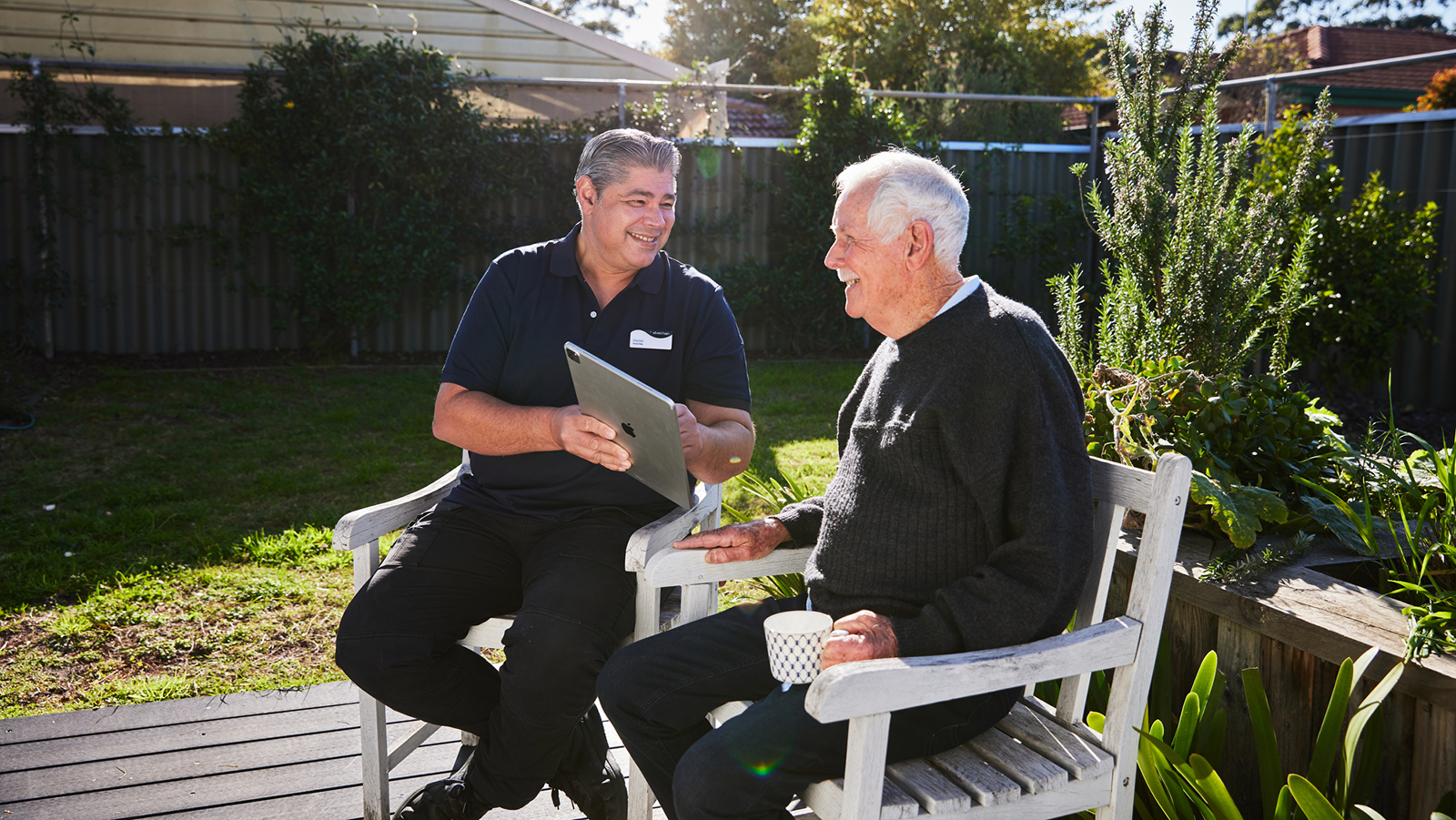Reducing depression in home-based aged care

The project employs digital technologies to facilitate the delivery of effective psychological strategies to home care clients.
In summary
- Swinburne and leading home care provider Silverchain are partnering to co-design and pilot a digital intervention for depression for older adults living at home
- The project has received funding from Aged Care Research and Industry Innovation Australia
- It builds on previous work that found older people were interested in using digital technologies to support their wellbeing
With more than one million Australians receiving in-home aged care, a lack of access to effective and appropriate mental health treatments is a growing concern. It is estimated that up to half of the older people who choose to age at home experience significant symptoms of depression but many lack accessible treatment options.
A new project led by Swinburne University of Technology and leading home care provider Silverchain will seek to address this problem by co-designing and piloting a digital intervention for depression for older adults living at home.
The project has received funding from Aged Care Research and Industry Innovation Australia (ARIIA).
The program, called e-EMBED (Electronic-Enhanced Management of Home-Based Elders with Depression) employs digital technologies to deliver effective psychological strategies to home care clients.
Digital delivery allows older adults the opportunity for self-directed and autonomous engagement with these treatment strategies for depression, and access to a broad range of resources to improve their wellbeing.
Swinburne clinical geropsychologist Professor Sunil Bhar says the project builds on the partnership’s previous work that found older people were interested in using digital technologies to support their wellbeing.
“The next step is to develop and pilot the digital psychological intervention for depression and evaluate its use in the home context.
“The design of the final product needs to be carefully planned together with people with depressive symptoms based on their preferences, level of digital literacy, and comfort using technology to improve their health and wellbeing.”
Silverchain Director of Research Discovery, Professor Tanya Davison says this is the first digitally-enabled mental health intervention developed specifically for the home aged care setting.
“This program will enable older Australians to access evidence-based treatments and communicate effectively with a mental health clinician in the comfort of their own homes.
“Our team will develop new tools to tailor digitally enabled approaches to meet the needs and preferences of individual older people.
“This project demonstrates our commitment to be leaders in home care internationally, provide an evidence base for effective care, and to improve the care we offer to more than 115,000 clients each year.”
-
Media Enquiries
Related articles
-

- Astronomy
- Technology
- Health
- Science
- University
- Sustainability
- Engineering
Swinburne highly cited researchers reach the top in 12 fields
Ten Swinburne academics have been named on the Highly Cited Researchers 2025 list, released by Clarivate
Tuesday 02 December 2025 -

- Technology
- Health
- Science
- University
$1.2m ARC funding to boost national X-ray spectroscopy capability through Swinburne and QUT partnership
Swinburne has secured $1.2 million in the latest Australian Research Council Linkage Infrastructure, Equipment and Facilities scheme round
Tuesday 02 December 2025 -

- Astronomy
- Technology
- Science
- Engineering
Meet Swinburne’s Roo-ver Mission team
Roo-ver will be Australia's first lunar rover, and it’s being designed, built and tested in Australia. Swinburne is playing a key role in the design and construction of Roo-ver, through its involvement in the ELO2 Consortium.
Wednesday 26 November 2025 -

- Technology
- Health
- Science
- University
- Aviation
- Engineering
Swinburne’s Mobile Innovation Lab hits the road
Swinburne’s Mobile Innovation Lab is a cutting-edge mobile facility designed for research, industry collaboration, STEM education, training and outreach.
Thursday 06 November 2025 -

- Health
- Science
Swinburne and Bionics Institute announce strategic alliance to accelerate medical device research
The Bionics Institute will partner with Swinburne University of Technology in a first-of-its-kind collaboration to accelerate the development of life-changing medical devices.
Thursday 13 November 2025

